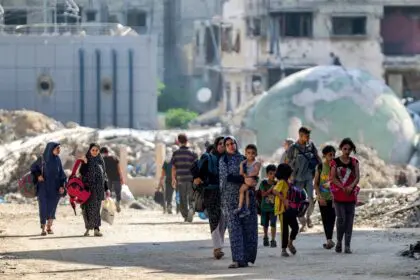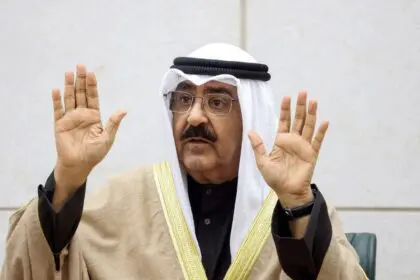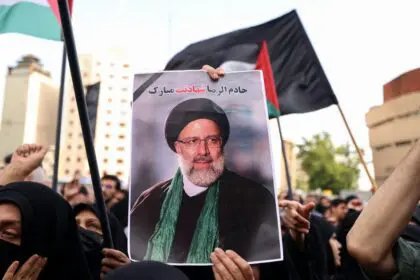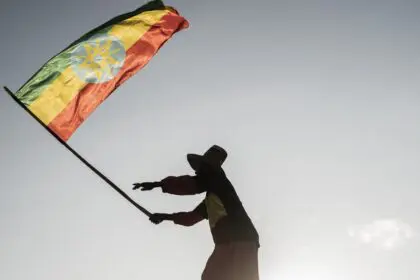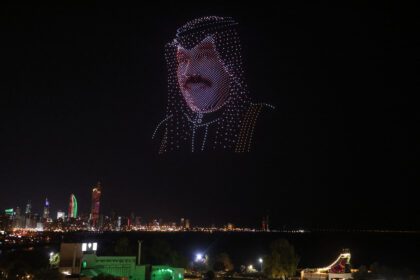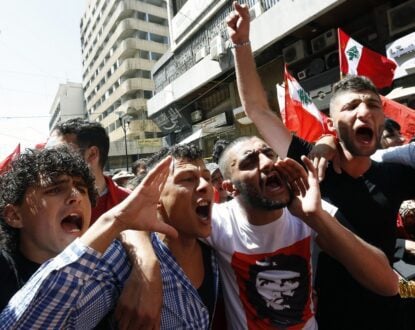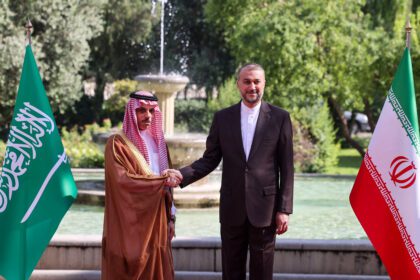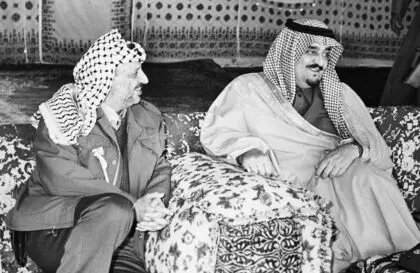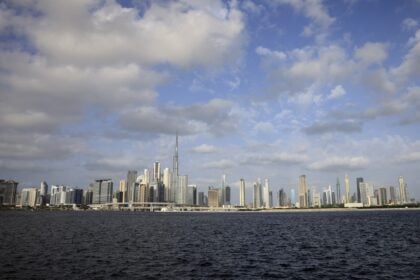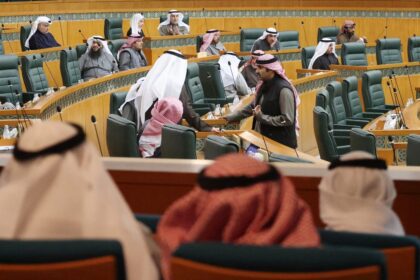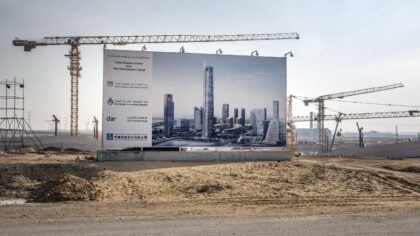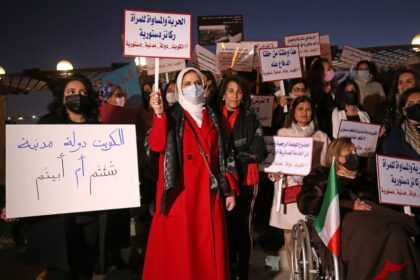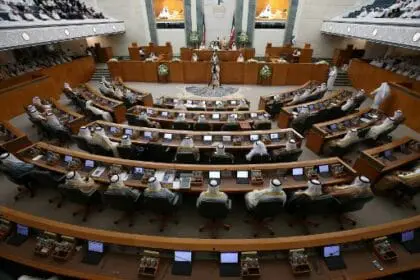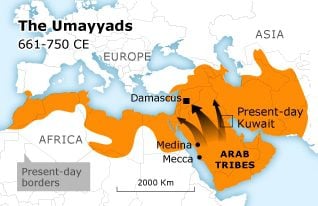Despite the presence of democratic institutions and a functioning constitution, Kuwait is not considered a full democracy or a constitutional monarchy. Below is an overview of those institutions and their development.

Introduction
In his celebrated study on Middle Eastern monarchies All in the Family, political scientist Michael Herb coined the term ‘dynastic monarchy’. With this, he aimed to typify the specific kind of autocratic rule of contemporary monarchies in the Middle East.
According to Herb, the monarchs on the Arab side of the Gulf are not absolute autocrats in a traditional sense. Instead of ruling sovereignly from within the relative isolation of the traditional court, Gulf rulers govern as heads of extensive dynastic families which have come to control and personalize the state.
This was achieved by centralizing and monopolizing executive power within the monarchical dynasty, while distributing control over the state’s bureaucratic institutions among senior family members.
The Al Sabah family of Kuwait pioneered this particular type of ‘dynastic’ government. When it proved effective in administering an autocratic, modern welfare state, based on large oil revenues; Other Gulf rulers copied the main principles of the Kuwaiti blueprint.
This family tree does not intend to be a complete overview of the Al Sabah lineage. It focuses on the most important posts that have been held by senior male members of the royal family. Sheikh Mubarak ‘the Great’ is considered the paternal ancestor of all successive rulers and prime ministers of Kuwait. Sources: Fanack, media reports, Wikipedia.
The ruling Al Sabah is not a coherent bloc, despite the fact that members usually unite in the face of external threats. Some of its senior members have nurtured ties with liberal Members of Parliament, others with Islamists. Hidden disputes within the family therefore, often seep into the parliamentary debate.
The main division within the family is between those members who descend from Mubarak the Great (through either of his sons, Jaber or Salim) and those who do not. All rulers since Mubarak have come from these two branches. For decades the ruler largely alternated between the two branches descended from Mubarak, but in recent years the Jaber branch has gained favour.
The Constitution
The political atmosphere in Kuwait has always differed substantially from that of other Gulf Cooperation Council states. The 1962 Constitution, notwithstanding its internal contradictions and disquieting vagaries, is, by regional standards, a liberal document. It states that ‘the system of government in Kuwait shall be democratic, under which sovereignty resides in the people, the source of all powers’ (Art. 6); and: ‘the system of government is based on the principle of separation of powers’ (Art. 50).
At the same time, however, it firmly secures the power of the Sabah family. The emir, or head of state, is always a descendant of Mubarak al-Sabah (Art. 4). He appoints the government (Art. 56) and shares legislative powers with the Parliament (Art. 65) while retaining the right to dissolve the latter by decree (Art. 107). Despite his great executive and legislative influence, the emir is ‘immune and inviolable’ (Art. 54) and therefore personally above the law.

The Executive
The executive branch is headed by the emir, a member of the Al Sabah family, who rules in conjunction with the legislature. The emir has the authority to appoint a crown prince (in consultation with senior members of the ruling family), Prime Minister, and cabinet. Cabinet members (one of whom must be an elected member of the legislature) have the same voting power as elected legislators, giving the emir more formal power than they would typically have in a parliamentary system.
In addition, the executive branch in Kuwait, as alluded to above, is dominated by (senior) members of the Al Sabah family. While a number of cabinet members hail from other (prominent) families, the posts deemed most important (the prime minister and ministers of interior, foreign affairs, and defence) have traditionally been held by the Al Sabah.
As in the other Gulf States, Kuwait is ruled by two overlapping sets of institutions: ministers and department heads on the one hand, and a ruling family council on the other. Before the fifteenth emir of Kuwait, Sabah al-Ahmad Al Sabah, came to power in 2006 a succession crisis emerged, which prompted the legislature to exercise a constitutional provision allowing it to force the abdication of the Crown Prince, Sheikh Saad, who had been incapacitated by illness.
Unlike in some other Gulf states such as Saudi Arabia and Qatar, where power has increasingly shifted towards the younger generation at the expense of ageing leaders, Kuwait has postponed this trend. Nawaf al-Ahmad, half-brother of former Emir Sabah al-Ahmad, came to power as emir in September 2020, and appointed in his turn the equally ageing Meshal al-Ahmad al-Jaber Al Sabah as crown prince.
After the death of Emir Nawaf in December 2023, Crown Prince Meshal succeeded him. Since Emir Meshal had not appointed any crown prince as of January 2024, it remained unclear if the ruling family would foresee a future transfer of power to a younger generation.
Amid signs of some potential changes in the line of governance, Emir Meshal appointed Sheikh Dr. Muhammad Sabah al-Salem, of the Salem branch, as his prime minister, who in his turn formed a government with many new figures, including the first non-royal foreign minister. While the most senior posts of Kuwait’s cabinets have been preserved for members of the Al Sabah, the cabinet formed in January 2024 only included two royals. In addition, Emir Meshal appointed Prime Minister Muhammad as his deputy in case of his absence from Kuwait.
The Legislative
Elections to Kuwait’s legislature have taken place since the early 1960s and have, with the exception of the 1967 elections, been largely free and open. The Assembly plays an important role in setting and challenging government policy, and it must approve all legislation. It frequently questions government ministers and at times votes ‘no confidence’ in regards to individual ministers. Political parties are illegal in Kuwait, but loose political ‘associations’ do exist, and distinct political blocs can often be discerned in Parliament.
Elections for the parliament, or National Assembly (Majlis al-Umma), are held every four years. The National Assembly is a unicameral body with 65 seats, fifty of which are elected by Kuwaiti nationals by simple majority vote; at least one of them will join the Cabinet. Fifteen members are appointed by the prime minister. The latter can also vote, except in votes of confidence.
The National Assembly has the right to adopt new laws, question (“grill” as it is known locally) or express no confidence in ministers (including senior members of the government, like the prime minister). It may also dismiss or impeach members of the government, except for the prime minister.
Elections

Protests in Kuwait echoed Arab Spring protests in other countries, albeit in a less intense manner. There was no call for an overthrow of the government; protests focused instead on corruption (with serious charges levelled at thirteen MPs), greater transparency, legalization of political parties, and calls for an elected Prime Minister.
Several factors account for this. Kuwait is wealthier than most countries in the region, and the government was quick to use its economic resources to pre-empt protest. Kuwait is also the most politically open country in the Gulf and consequently offered the opposition many options for non-violent expressions of dissent.
The February 2012 elections resulted in the ouster of a large number of incumbents. Islamist candidates won fourteen seats. Tribal candidates, of whom about half were also Islamist, won 21 seats. Liberals did poorly, going from eight seats to five, with none of the four women who ran being elected in 2009. Shiite seats were reduced from nine to seven. As a result of the elections, a loose Islamist-tribal coalition emerged.
A period of increasing tensions between the Islamist-tribal coalition and the government followed. After Kuwait’s Constitutional Court’s ruling scrapping the elections and the emir’s emergency decree sparking further protests, the political deadlock led to another election round in December.
The elections of 1 December 2012, boycotted by the opposition, led to a lower voter turnout than in previous years and a victory for pro-government candidates. Shiite candidates, who are known to be pro-government, won 17 out of the 50 seats. Sunni Islamists and tribal candidates lost. In addition, three women were elected for the second time.
The opposition, having lost its position in the National Assembly, staged regular protests demanding the abolishment of the new Parliament and the withdrawal of the one-vote decree.
Despite protests organised by the opposition, demanding the dissolution of the parliament and to retract the one-person, one-vote law, the constitutional court upheld the law.
In 2013, the Constitutional Court dissolved the National Assembly elected in 2012. As a consequence, parliamentary elections were held in July 2013. The liberals made slight gains (three seats), while the Shia candidates lost nine seats. In contrast, the Sunni candidates won seven seats, and the tribal groups held on to power with 24 seats.
Opposition gains ground
In 2016, against the backdrop of escalating tensions between the government and a number of MPs over fuel price increases, the parliament was dissolved again, this time by the emir of Kuwait, Sheikh Sabah al-Ahmad Al Sabah.
After a four-year boycott in protest over the one-person, one-vote system, the opposition participated in the November 2016 elections, where it won 24 seats, nearly half of parliament. At the same time, voters dealt a heavy blow to members of the outgoing parliament, retaining only 40 percent of them.

YASSER AL-ZAYYAT / AFP
The victory of the opposition was seen as a protest against the government’s austerity measures and citizenship revocations. This reduced the government’s overwhelming control in the previous assembly to a fragile majority. The emir tasked Sheikh Jaber al-Mubarak Al Sabah, the prime minister, with forming the government. Marzouq al-Ghanim, speaker of the National Assembly, also retained his position.
In the following years, opposition members, especially tribal, islamist and independent members of Parliament, continued to oppose the government’s strict measures regarding the relatively low price of oil, and, from early 2020 onwards, a collapse in demand for oil due to the COVID-19 pandemic.
Amid calls for reforms over corruption and high debt, the elections of December 2020, the first that were being held under the rule of Emir Nawaf al-Ahmad al-Jaber Al Sabah, resulted in a win for the opposition, whose candidates took nearly half of the seats in Parliament. Voters vented their frustration and voted for fresh faces (31 out of 50 seats) and for the return of some former members known for their outspoken stance.
Around thirty candidates under the age of 45 joined the National Assembly, which ignited sparks of hope and ambition amongst the younger generation. However, no women were elected, although a greater number of women than before had vied for a seat, this was seen as a blow to women’s efforts to win greater participation in politics, after they were granted the right to vote and run for elections in 2005. Women candidates and rights activists reported that they still encountered more scrutiny and criticism than male candidates while running for elections.
More liberal candidates did not win or were not reelected. Sunni islamists (including Salafis and Muslim Brotherhood-linked candidates) retained their position. The number of seats taken by Shiites, who are generally considered pro-government, remained unchanged. Furthermore, tribal candidates gained ground.
However, there is more to Kuwaiti parliamentary politics than just the above blocs based on identity. While the composition of the National Assembly can be analysed on the basis of such blocs, it can be more helpful to focus on the dynamics within these political constituencies instead of differentiating between identity groups.
According to Kristin Smith Diwan, senior resident scholar at the Arab Gulf States Institute in Washington, “there was a willingness to defy political elites, clearly evident across Shia, Sunni Islamist and tribal constituencies.”
Furthermore, as political parties are banned in Kuwait, candidates can only run for office as independents. Political alliances are therefore limited to unofficial movements or blocs. Candidates may shift their allegiance from one movement to another and therefore it is not easy to accurately identify their ideological affiliations.
In addition, the 2012 ‘one-man one-vote’ law encourages personal, clientelist relationships between candidates and voters, relying on sectarian, tribal and other kin-based appeals. It discourages candidates from organising political alliances and campaigning as groups; it is one of the ways in which the government has tried to stifle any organised political opposition.
The Judicial
Traditionally, justice in the Muslim world was dispensed by Islamic judges ( qadis ), who, in passing judgement, relied heavily on the opinions ( fatwas ) and legal compendiums of private legal specialists. So, while Islamic judges were often appointed by a ruler – with the ruler sometimes taking on the role of judge, as seems to have been the case in pre-modern Kuwait – the ruler could not influence the law itself.
This changed with the introduction of the modern nation state in the Middle East. Except for family law, Sharia (Islamic law) was almost completely eradicated and replaced by Western-style law, which is produced solely by state institutions.
As a result, autocratic rulers in the Middle East acquired a greater influence on both the formulation of law and its application by state-appointed judges. This has had a negative effect on the rule of law in Muslim countries.
Kuwait, for example, has seen its Constitutional Court support the ruler in suspending the Constitution. Another concern is that most of Kuwait’s judges are foreign nationals working on temporary contracts, making them especially vulnerable to state pressure.
While the people of Kuwait enjoy slightly greater personal freedom and security than the citizens of other Gulf States, there is no actual ‘rule of law’.
While torture is explicitly forbidden, accusations of torture committed by state security officials are not followed up by official investigations, let alone legal charges, or new measures to prevent its occurrence.
The Constitution’s advocacy for the freedom of press and the new 2006 press law requiring court orders to close down newspapers has not stopped the state from prosecuting journalists critical of the government, on the grounds of ‘defamation’.
Likewise, Kuwait’s Constitution establishes the principle of equality of the sexes and freedom of religion, but women, non-Muslims, and Shiites continue to face discrimination in law, court, bureaucracy, and society. Migrant workers, who constitute about half the nation’s inhabitants, are not sufficiently protected against abuse and exploitation by local employers.
In particular, female domestic workers suffer from a lack of rights, which can lead to sexual assault and other forms of mistreatment. The continued prejudice and maltreatment of migrant workers in Kuwaiti society remains a serious problem.
Kuwait’s court system is unified, unlike many in the region, which have separate Sharia courts for personal-status law. In matters of personal status, Muslims are governed by codified Sunni or Shiite law. Kuwait uses the niyaba system, in which the judiciary handles both investigations and prosecutions.
Corruption
One of the rare issues on which the parliamentary opposition regularly unites is that of government corruption. In 2007, two ministers resigned after being accused of corruption by the Parliament. In 2008, the government submitted its resignation after Islamist lawmakers accused the Prime Minister, a nephew of Emir Sabah, of corruption. (In the following government, the Prime Minister was reappointed by the emir.)
In the 2012 election, corruption dominated debate. In recent years, Parliament has been able to force the government to abrogate or renegotiate a significant number of state contracts. Build-operate-transfer (BOT) contracts for real-estate development on public land have come under particular parliamentary scrutiny.
These public-private business deals are generally considered a main source of enrichment for prominent state employees and their partners in the private sector, both domestic and foreign. In fighting state corruption, the Parliament depends heavily on the state audit bureau, which has the reputation of keeping fairly accurate and transparent public accounts.
Foreign Policy
Being a small nation in a region where large, traditionally autocratic states compete for regional hegemony in an often aggressive fashion, Kuwait has always preferred military alliances with strong partners from outside the region.
After independence from Britain in 1961, Kuwait continued to rely on its former colonizer’s military might until 1971, when Britain pulled most of its military personnel out of the Gulf. The 1970s and 1980s were a transitional era, during which Emir Jaber established military ties with both the Soviet Union and the United States.

The Iraq-Iran War was, however, a turning point in the relationship. The US decision to agree to a Kuwaiti request to reflag its vessels under the US flag led to a US military presence in the Gulf that continues to this day.
The Kuwaiti public initially kept Kuwait from developing a tight-knit relationship with the United States; all pretence of diffidence towards the Americans was shed after the Iraqi invasion of August 1990. Since then, the US has assumed the role, formerly played by Britain, as Kuwait’s dominant military and commercial partner.
On the regional diplomatic level Kuwait’s priorities boil down to two main ones. First, to prevent its powerful neighbours from finding any pretext for meddling in the country’s internal affairs. Second, regional conflicts should be settled peacefully, in order to keep the Gulf sea lanes open and safe for trade.
In order to achieve these two major policy goals, the country needs to appear strictly neutral in the face of regional conflicts and power struggles. This is not an easy task in the Middle East. The fact that Kuwait only accepted Saudi military assistance when under imminent threat of occupation – or even during a later phase, as in 1990 – can in large part be explained by Kuwait’s need for a balanced regional diplomatic policy.
Likewise, Kuwait’s decision to appoint a ( Shiite ) ambassador to Shiite-governed Iraq in 2008 – for the first time since the Iraqi invasion – does not mean that it has stopped seeing its neighbour as a threat – rather the opposite (although US pressure was probably decisive in the timing of the ambassadorial appointment).
Kuwait, particularly under the leadership of the late Sheikh Sabah al-Ahmad al-Jaber Al Sabah, who served for four decades as Minister of Foreign Affairs, Prime Minister from 2003-2006 and Emir from 2006 until 2020, always used its economic leverage and resource wealth to foster good relations with other nations around the world. With its strategic location on the Arabian Gulf, it has played a role of honest broker in international politics. Most recently, Kuwait mediated in the Saudi-Qatari rift which was threatening the unity of the Gulf Cooperation Council (GCC).
In the 1970s, Sheikh Sabah mediated between Iran and Bahrain, when Iran revived its territorial claims on the island nation; during the tanker war of the 1980s, when merchant ships were attacked in the Gulf, Sheikh Sabah managed to secure protection for vulnerable vessels from both the Americans and the Soviets; Kuwait enjoys extremely good relations with the United States, the countries of the European Union and the Asian tigers; furthermore it maintains balanced relations with both its neighbours Iran and Saudi Arabia, whilst it recently entered into a reconciliation process with Iraq.
In addition, Kuwait has exemplified a continuous effort in humanitarian work globally. The nation has provided regular support to several countries in Africa, the Middle East and Asia through the Kuwait Fund for Arab Economic Development. It has increased its support to multilateral humanitarian action since the start of the war in Syria. In 2013, Kuwait donated 33 million Kuwaiti dinars to support Syrian refugees in neighbouring Arab countries, amounting to the single largest donation by a Gulf country to the UN Refugee Agency.
Kuwait donated 61 million Kuwaiti dinars to rebuild destroyed homes, infrastructure, and other facilities after the Israeli attacks on Gaza in 2014. A day after the devastating explosion at the Beirut Port in Lebanon, Kuwait sent 36 tonnes of medical supplies and other necessities to Beirut through the Kuwait Red Crescent. Kuwait donated twelve million Kuwaiti dinars to the World Health Organisation to help combat the spread of Covid-19 around the world.
Kuwait hosted international pledging conferences for Iraq and Syria, providing an important platform to mobilise support for one of the worst crises in the world. The late Sheikh Sabah was awarded with a Certificate of Appreciation for his leading support to humanitarian causes around the world during a ceremony at the United Nations Headquarters in New York in September 2014.
The Military
Introduction

As a major oil producer, stability in Kuwait is needed for itself, the Gulf region and the world. As such, Kuwait is an important ally of the United States, providing basing, access and transit for American forces in the region.
In 2021, Kuwait ranked 71 out of 140 countries included in the annual GFP (Global Fire Power) review. That year, the number of people who reached military age was estimated at 34,577 personnel, while military expenditure was estimated at $6.9 billion. In 2020, military expenditure accounted for 6.5% of GDP, compared with 5 per cent in 2015 and 3.5 per cent in 2011, according to the Stockholm International Peace Research Institute.
| Index | Number | Rank out of 140 |
| Total military personnel | 46,500 | - |
| Active personnel | 15,500 | 102 |
| Reserve personnel | 24,000 | 54 |
| Total aircraft strength | 87 | 78 |
| Fighter aircraft | 27 | 48 |
| Attack aircraft | 0 | 95 |
| Transport aircraft | 2 | 115 |
| Total helicopter strength | 42 | 68 |
| Training aircraft | 13 | 83 |
| Combat tanks | 367 | 40 |
| Armoured fighting vehicles | 800 | 67 |
| Rocket projectors | 27 | 64 |
| Total naval assets | 106 | 8 |
Kuwait’s military strength in 2021. Defence budget (2020): USD 6.9 billion. Source: GFP review.
The Iraqi invasion of 1990 meant a watershed for the Kuwaiti Armed Forces. As could be expected, the small, modestly equipped and insufficiently trained forces proved no match for the Iraqi armoured formations and helicopter borne troops – with eight years of experience in the Iraq-Iran War – that steamrolled southwards. A few Kuwaiti armoured cars put up some resistance, but the outcome had already been decided. Many Kuwaiti armoured units fled across the border to Saudi Arabia, as did some aircraft.
In 1991, after the Iraqi occupying forces had been ousted and left ineffective, the government of the oil -rich country decided to re-equip and modernize its armed forces with a programme worth more than 10 billion dollars and spanning ten years. The country chose its suppliers carefully and geostrategically: the United States, Great Britain, but also Russia, an important UN Security Council member. Hundreds of millions of dollars’ worth of Chinese defence equipment was also bought.
Most notable equipment are the American M-1 Abrams tanks, AH-64 Apache attack-helicopters and Russian armoured vehicles and artillery rockets.
Like all Gulf States, Kuwait faces a number of demographic and socio-economic problems in its bid to keep its enemies at bay in future conflict scenarios. These problems stem mainly from the fact that it is a small country, and that a lot of expertise to handle the high-tech weaponry has to be bought abroad.
Kuwaiti doctrine focuses on being able to delay a foe from occupying the capital and industrial targets for about two days, which is how long it takes, it is assumed, for American reinforcements to arrive. Nowadays, much more emphasis is put on training, in view of past events.
In August 2016, Kuwait ordered 30 H225M Caracal helicopters, as part of a deal with Airbus Helicopters worth $1.1 billion.
In October 2015, Kuwait announced its intention to buy 120 Sherpa tactical and light armoured vehicles from France’s Renault Trucks Defense (RTD). In April 2016, it signed a deal to buy 28 Eurofighter Typhoon jets worth $8.8 billion, and in December 2016, it announced the purchase of a further 300 Sherpa vehicles from RTD.
In January 2017, the US State Department approved the sale of support equipment and services for Kuwaiti AH-64D Apache helicopters, worth an estimated $400 million.
Latest Articles
Below are the latest articles by acclaimed journalists and academics concerning the topic ‘Politics’ and ‘Kuwait’. These articles are posted in this country file or elsewhere on our website:


